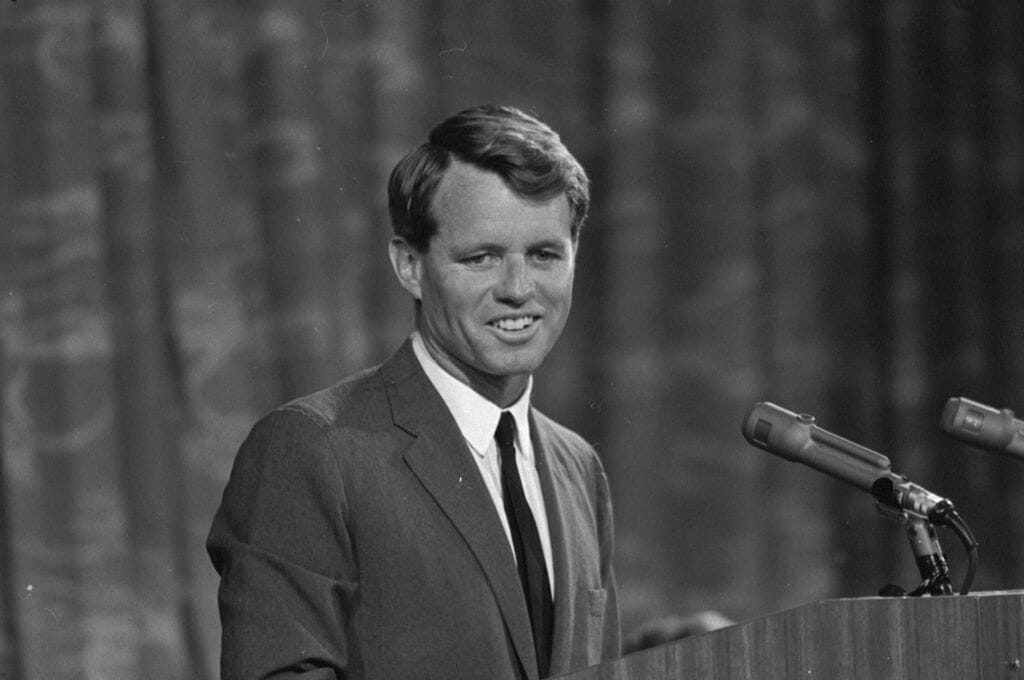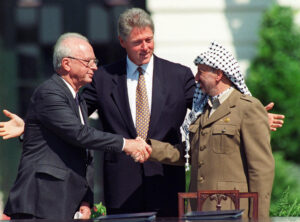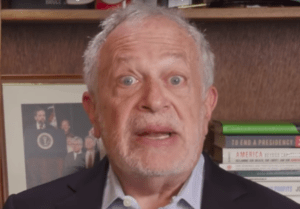The ‘Two Bobbys’: The Short, Complicated Political Life of RFK
Truthdig Editor in Chief Robert Scheer was the last journalist to interview Robert Kennedy moments before the candidate was fatally wounded on this date 50 years ago. Robert F. Kennedy in 1964. (Warren K. Leffler / Wikimedia)
Robert F. Kennedy in 1964. (Warren K. Leffler / Wikimedia)
Editor’s note: Robert F. Kennedy was fatally wounded by a gunman on June 5, 1968. To honor Kennedy’s legacy 50 years after his death, Truthdig is posting this edited excerpt from a piece by Robert Scheer that first ran in The Nation on Feb. 3, 2000. Scheer was the last journalist to interview Robert Kennedy, moments before he was shot at the Ambassador Hotel in Los Angeles. The essay below is extracted from a review of Ronald Steel’s book on Kennedy, “In Love With the Night.”
Anyone who has ever been even mildly curious about Bobby Kennedy knows of his early association with Senator Joe McCarthy, his enthusiasm for the cold war, his blind loyalty to Kennedy family power, overwhelming political ambition and conversion quite late in his short life to goals of social justice.
The conventional liberal in the 1968 presidential primary season was known to all to be Eugene McCarthy, and the competition with Bobby for the Democratic nomination was not over the purity of the progressive agenda; rather, it was caused by the momentum that Bobby brought to what even back then had come to be seen as a compromised and forlorn cause.
Bobby’s challenge was not to revive the world of liberalism but rather to put some political muscle into a new alliance, enlisting the likes of Paul Schrade of the UAW and Cesar Chavez of the United Farm Workers to stand with the antiwar students in turning the domestic social engineering and incessant foreign interventionism of cold war liberalism to human purpose.
To take the money paying for the carpet-bombing of Vietnamese farmland by B-52s and devote it instead to programs for poor Native Americans, blacks and Latinos in this country was the mantra of Bobby’s last years—in short, to save President Lyndon Johnson’s War on Poverty from his war on poor peasants. So, too, for Gene McCarthy; but the fey Senator from Minnesota, an ever-quirky, aloof and indelibly patrician politician, failed to convey the life-and-death implications, the bleeding human dimension, of his challenge to Johnson. Not so that ordinary folk could grasp it, anyway.
What Bobby was, and McCarthy never could be, was exciting. He could galvanize people into action, particularly younger people, to work in the black ghetto of Bedford-Stuyvesant when it suited his needs as a senator from New York, or later to support Native Americans or Latino farmworkers during his presidential primary campaign. One runs into people to this day, not the least being the actual progeny of Bobby, who retain that commitment to action.
Undoubtedly, Bobby could be cynical, but there was something infectious about this Kennedy’s enthusiasm, which made it believable not only to his audience but to Bobby himself. Those of us who covered him understood the contradiction well, and Steel acknowledges that it was the cartoonist Jules Feiffer, certainly a pre-eminent liberal commentator all these years, and a McCarthy delegate, who endlessly poked fun at “the two Bobbys.” But that second Bobby, moved by a visit to an Indian reservation or farm labor camp, was also real.
Maybe it was no more than the ability (which Bill Clinton also has) to combine a raging opportunism with the solid commitment to opportunity for all, a commitment born of his own experience. Bobby’s history was the opposite of bitter poverty. But certainly after the assassination of his brother, this was a fellow who felt some important things deeply. Bobby wrestled with the contradictions and incompleteness of the JFK years and the disgrace of LBJ’s escalation in Vietnam. While that may not have made him a less deliberately centrist President than Clinton, it is difficult to believe that the emotional content of either man’s rhetoric is all fake.
As Steel mentions, I was one of Bobby’s critics from the left, and he quotes me saying in the pages of Ramparts that Bobby was “a very charming and alive man for a politician,” who offered the “illusion of dissent without its substance,” and cautioning that “he could easily co-opt prevailing dissent without delivering to it.” All true as a warning, but I also frequently gave the man his due for growth, as in his questioning of the Vietnam War and even his brother’s and his own earlier Cuba policy. Bobby was no saint, but he was indeed attuned in his last years to the hurt of people and open to the prospect that things did not have to be this way.
Your support matters…Independent journalism is under threat and overshadowed by heavily funded mainstream media.
You can help level the playing field. Become a member.
Your tax-deductible contribution keeps us digging beneath the headlines to give you thought-provoking, investigative reporting and analysis that unearths what's really happening- without compromise.
Give today to support our courageous, independent journalists.





You need to be a supporter to comment.
There are currently no responses to this article.
Be the first to respond.